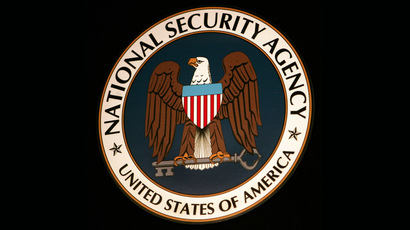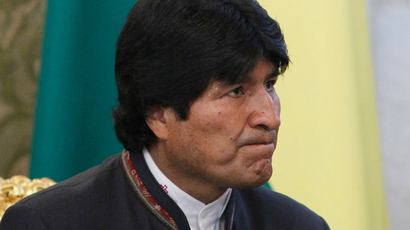'Join fight for privacy now!' Stallman on Snowden & how to escape surveillance
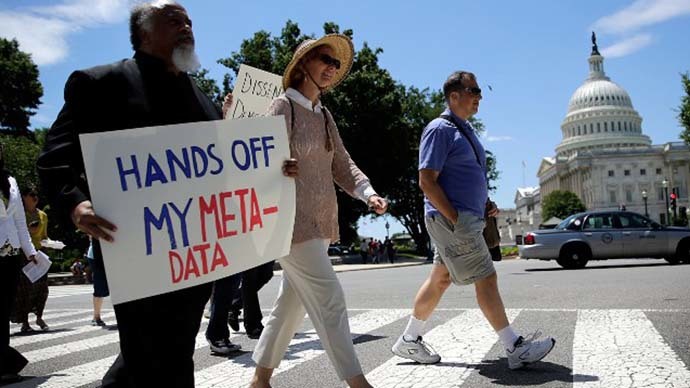
The time to join the battle for privacy is now, because whistleblowers like Edward Snowden and Julian Assange can’t fight against Big Brother on their own, software freedom activist and founder of the Free Software Foundation, Richard Stallman, told RT.
Stallman says that the revelations of NSA leaker Edward Snowden,
who exposed secret US and British surveillance programs to the
public, are a confirmation of his worst concerns - which he
voiced over a decade ago.
“I am very happy that Snowden told us what the US government
and some other governments are really doing,” he said in
an interview with RT’s SophieCo program.
“I had no proof – I’ve been saying for many years that if we
look at the ‘Pa-Triot Act’ – I won’t call it ‘patriot’ because
it’s as unpatriotic as you can get in a country based on an idea
of freedom – I said, ‘look at this, I would guess that they are
collecting all the data about everyone, regularly, fast enough so
it doesn’t get erased between collections – but that was just a
guess.”
But with the truth now available to the people, the activist
believes that “Our cause now has more momentum. We might,
maybe, be able to stop this.”
“Our freedom is at stake and this is true for people all around
the world,” he said. “I would guess that every country is
increasing surveillance through digital technology to a level
that is unprecedented in the world’s history. Unless we had
a great insufficiency of surveillance before, we should regard
this as intolerable.”
The founder of GNU project and the Free Software Foundation urges
those who are interested in winning back their privacy to start
acting immediately in order to have any chance of success.
“If you want to have the possibility of some privacy someday,
you’d better join the fight now, because now a bunch of other
people are joining the fight. Now is the moment when you can make
a difference,” he explained. “If you wait until the day
you wish you had some privacy and only then try to do
something…well, that day you will be one of a few people doing it
and that won’t be enough. You’ve got to help make a critical mass
when other people are doing it – and that’s now.”
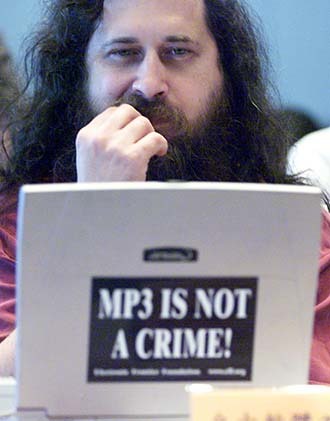
Stallman doesn’t object to the right of authorities to
investigate people who committed criminal acts, but stresses that
digital surveillance on them must be initiated by a court warrant
only.
Keeping a giant dossier on every single citizen gives the state a
free hand because when it wants “to get somebody it can always
find something to punish that person for,” he said.
The 60-year-old activist disagrees that the actions of Snowden
and WikiLeaks founder Julian Assange have turned them into
“outcasts,” despite the fact that both of the
whistleblowers are currently trapped – Snowden in Moscow’s
Sheremetyvo airport and Assange in the Ecuadorian Embassy in
London.
“Assange is not an outcast. Millions of people, including me,
admire him. And Snowden is not an outcast - millions of people in
the US and elsewhere admire him. Please, don’t exaggerate. They
have been besieged by the empire, but not defeated,” he said.
“They decided to take these risks for our freedom. But, they
can’t win by themselves. It’s up to us to carry the fight
forward.”
He also expressed certainty that Snowden “will find a way to
get asylum.”
The NSA leaker voiced plans to ask Russia for political asylum
last week, but the country’s Federal Migration Service has not
yet received a plea from him.
‘Facebook is a monstrous surveillance engine’
Stallman says that corporations and the state “work hand in
hand” in the US, as the Patriot Act obliges companies to
“secretly” pass data to security services.
According to the activist, the best way to protect your
information is to refrain from using “nasty” services like
Facebook, which he described as “a monstrous surveillance
engine.”
He added that the “malicious technology” Apple and
Microsoft provide “can’t be excused if it had some good
effects.”
“We’ve got to realize that, first of all, Microsoft and Apple
software is proprietary. That means the users don’t control the
program, rather than the program controls the users – and that’s
an injustice,” he stressed. “And the existence of
proprietary, although it wasn’t for Microsoft or Apple back then,
is why I started with the Free Software movement. In addition to
setting things up so that they control the program and the
program controls the users, they started putting in malicious
functionality that spies on users and intentionally restricts
users. There are even ‘back doors’ in that software, so,
literally speaking, Apple and Microsoft software is malware.”
“We call Windows 8.1 ‘Windows Prison Edition’ because it’s
designed to require people to send data to Microsoft servers, and
of course, Microsoft will hand over any of that data to the US
government on request. It puts the users in prison,” the
activist added.
Stallman says that although many modern people have voluntarily
traded their privacy for gadgets, he’s sure that “freedom is
more important than innovation.”
“Companies are steering them by saying: ‘You could have this
convenience, but only if you let us be nasty to you in that way.’
And yes, people who are not sensitized to the issue, they might
say ‘yes,’ but there’s no fundamental reason why this convenience
has to require that nastiness. It’s that a company figures that
maybe they can get you to accept that nastiness by attaching it
to this convenience. Now, if we had control of how things were
built, we could have this convenience in most cases without that
nastiness,” he explained.
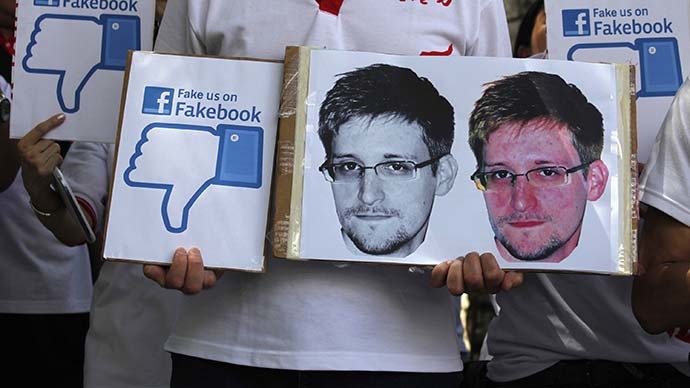
Stallman says he doesn’t own a mobile phone because it’s a
“surveillance and tracking device” which is monitoring the
person’s location 24/7 and can be easily converted into a
listening device by remotely installing specific software.
The activist says that even encrypted emails aren’t necessarily
as private as one might think.
“You shouldn’t trust any encryption program, unless it’s free
software and the encryption is being done on your copy on your
computer,” he warned. “Encryption on a server isn’t
trustworthy. How do you know they’re not saving a copy before
they encrypt it and giving it to the NSA?”
Bitcoin, a cryptocurrency which is described as a tool of
maintaining the privacy of transactions on the internet, “seems
like a solution to some problems,” but its flaw is that it’s not
totally anonymous, Stallman said.
“I think we need a payment system where the payer is
anonymous. The payee doesn’t have to be anonymous, but it has to
be so you can pay to access a webpage and do so anonymously,”
he said. “I’m not saying we need total anonymity. We need
anonymity from the one who’s paying to access the website.
However, it’s okay if the website operators are not anonymous in
receiving this money – after all, we want them to pay their
taxes.”













